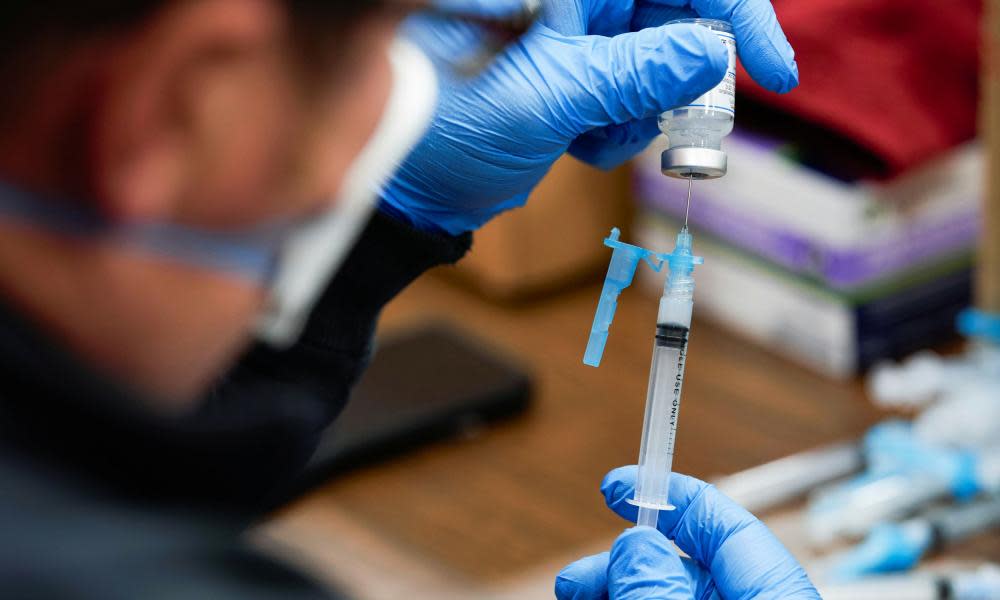Texas college apologises after undocumented migrants refused vaccine

A university in Texas has apologised after undocumented immigrants were refused a Covid-19 vaccine, saying it had made “critical mistakes” in turning people away.
The Washington Post reported that a pre-diabetic man, Jesús Díaz, 61, was denied the vaccine after failing to provide a social security number. It said Diaz was among at least 14 people refused a vaccine because of residency or immigration status by the University of Texas Rio Grande Valley.
Related: 'There's a degree of mistrust': a third of US military personnel refuse Covid vaccine
“I felt so much shame and anger at the same time,” Díaz told the newspaper. “I felt discriminated against, but I didn’t want to keep insisting.
In a statement, the university said: “It has come to our attention that we have made some critical mistakes. Most regrettable among these errors is the improper denial of eligible patients at our vaccination sites.
“This misstep resulted from incorrect instructions being provided to our staff, based on an understanding of guidance from state-level advisers, that only Texas residents were eligible for vaccination.”
The Texas state health agency does not require proof of residency from anyone in order to administer the Covid vaccine. The university’s blunder highlights the disparity between different communities, especially those who are undocumented, when it comes to testing and vaccine access.
Latinos in America are dying at higher rate from Covid-19 than their white or Asian counterparts, but they are one of the least likely groups to be vaccinated against the virus, according to an AMP Research Lab analysis.
In Texas, only 3.9% of Latinos have been vaccinated compared to 9% of whites and 11.4% of Asians. In January, Texas state officials threatened to cut Dallas county’s vaccine supply after it announced plans to prioritize vaccinating communities of color.
Testing for the virus in Texas has also been inequitable. In May, NPR found there were more Covid testing sites in whiter neighborhoods in four out of the six largest cities in the state.
In the same statement, the university said it is identifying all patients who were turned away and contacting them to reschedule their appointment.
But Díaz told the Post: “I really don’t want to go there. I’m ashamed to go back. I want to look for another option where the same thing won’t happen to me again.”

